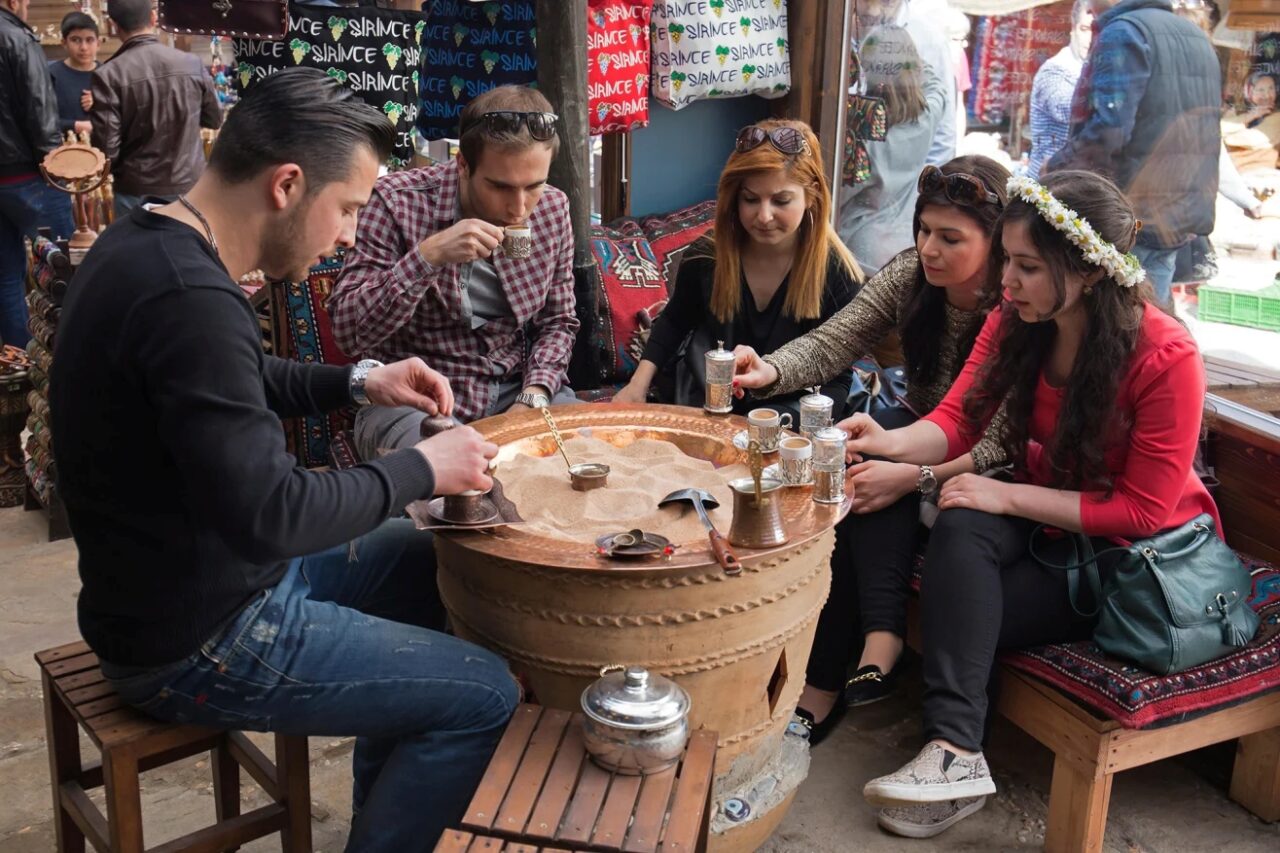Турецкий кофе — это не просто напиток. Это социальный ритуал, символ гостеприимства и культурное наследие, которому почти пять веков. Он включён ЮНЕСКО в список нематериального культурного наследия человечества, а традиционный способ приготовления в джезве остаётся важнейшей частью идентичности Турции и её культурного влияния.
От Йемена до Османской империи
Как сообщает CNN, история начинается в Йемене XV века, где суфийские мистики употребляли кофе, чтобы не засыпать во время ночных молитв. В 1538 году султан Сулейман Великолепный присоединил Йемен к Османской империи, и уже вскоре кофе добрался до Константинополя (ныне Стамбул). К 1550-м годам в городе появились первые кахвехане — кофейни, быстро ставшие центрами культурной и общественной жизни.
Метод приготовления тоже был особым: кофе не заваривался, а медленно «варился» в воде в маленьком медном ковшике джезве, образуя крепкий нефильтрованный напиток с плотной пенкой. Эти кофейни распространялись стремительно, но часто вызывали подозрения у властей и духовенства, которые опасались, что они становятся местами политических заговоров и дискуссий. Подобные тревоги позже возникли и в Англии: в XVII веке король Карл II пытался закрыть лондонские кофейни, считая их очагами оппозиции.
Ритуал гостеприимства
CNN подчёркивает, что в Турции кофе символизирует общение и связь. Гостям его подают с чашкой воды и кусочком лукума (турецкой сладости). Пить напиток принято медленно, чтобы гуща осела на дне чашки. После этого наступает время одного из самых узнаваемых обычаев — чтения кофейной гущи. Перевёрнутую чашку оставляют остывать, а затем узоры и символы в осадке трактуют как знаки удачи, путешествий или счастливых событий.
Кофе играет роль и в свадебных традициях. Невеста должна приготовить кофе для жениха и его семьи. В качестве испытания она может насыпать в чашку соль вместо сахара. Если жених выпьет напиток без жалоб, это считается доказательством его терпения и зрелости.
От Босфора до Темзы
Влияние турецкого кофе распространилось далеко за пределы империи. CNN напоминает, что в 1652 году в Лондоне открылась первая кофейня — благодаря купцу из Измира и его слуге Паскуа Розе. За один пенс посетители могли пить кофе без ограничений и вести оживлённые беседы. Эти места прозвали «пенни-университетами», ведь они стали центрами новостей, политики и идей.
Однако, несмотря на богатую историю, турецкий кофе так и не получил мировой славы эспрессо. Некоторые эксперты, цитируемые CNN, объясняют это разрывом поколений: для молодёжи он часто ассоциируется с родительским домом, а не с современными трендами. Другие считают, что традицию нужно сохранять, не изменяя её сути.
Между традицией и обновлением
CNN отмечает, что энтузиасты по всему миру стараются возродить интерес к турецкому кофе. В Лондоне проводят мастер-классы по его приготовлению, а в Нью-Йорке «Turkish Coffee Room» предлагает театрализованные церемонии с кофейными гаданиями, которые очаровывают американскую публику.
В Стамбуле же аутентичный вкус можно найти в культовых местах: Hafız Mustafa, Mandabatmaz на улице Истикляль или Nuri Toplar на Египетском базаре. Для тех, кто ищет современный подход, CNN рекомендует Hacı Bekir в районе Кадыкёй.
Живое наследие
Как подытоживает CNN, турецкий кофе остаётся живым символом культуры и гостеприимства. Будь то историческое кафе в Стамбуле, семейный дом в Сафранболу или культурный семинар за границей, каждая чашка несёт в себе и вкус традиции, и историю, готовую к рассказу.
Эта статья адаптирована и переведена по материалам CNN Travel. Все права принадлежат оригинальному издателю. Qahwa World публикует её в образовательных и культурных целях.
